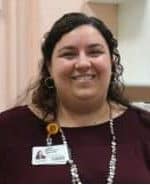TRI Announces Pilot Recipients for Special Populations Studies
| The Translational Research Institute (TRI) has awarded three pilot research grants to UAMS faculty for studies of special populations in Arkansas.
Special populations include children, older adults, minority groups, underserved communities, and rural populations.
The grants of up to $50,000 will be used for one-year projects, and the researchers’ findings will be used to leverage larger grants from the National Institutes of Health or other federal funding agencies to expand on their work. The awardees were selected by a review committee that included UAMS faculty, faculty reviewers from an outside institution, and local community reviewers.
Below are the College of Medicine researchers and their project titles, including links to their videos explaining their pilot proposals:
- Henry K. Wong, M.D., Ph.D., professor, Department of Dermatology; “Targeting the CTCL (Cutaneous T Cell Lymphoma) Microenvironment for Growth Control.” CTCL is a cancer of the immune cells that grow in the skin. It affects men and African-Americans more than other populations. African-American men are also affected at an earlier age and have a higher mortality rate.
- Melissa Zielinski, Ph.D., assistant professor, Department of Psychiatry; “Incarcerated Pregnant Women in Arkansas: Increasing ResearchCapacity and Piloting Lactation and Doula Support Services.” As part of the study, childbirth support will be provided for up to 24 incarcerated women.
- Kristin Zorn, M.D., associate professor, director of the Division of Gynecologic Oncology, Department of Obstetrics & Gynecology and Division of Genetics; “Assessing Statewide Variation in Hereditary Cancer Care Utilization in Arkansas.” The study will use the Arkansas All-Payer Claims Database, which has de-identified patient care records from Medicaid, Medicare, private insurers and state employees. The data will help researchers better understand gaps in care. The findings will be taken back to the affected communities where the public will be invited to guide future research efforts.


